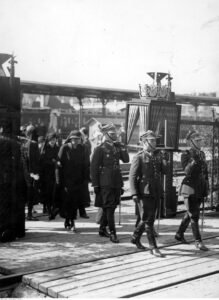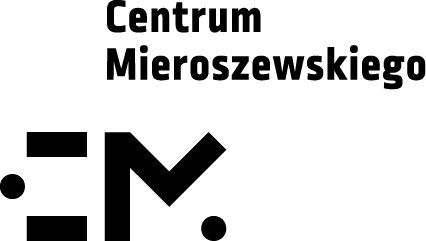
The transfer of the urn containing the Marshal’s heart to Ostra Brama: Aleksandra Piłsudska (fourth from right). Photo: National Digital Archives
On 31 May 1935 at around 6 a.m., a special train which carried an urn containing Marshall Józef Piłsudski’s heart arrived in Vilnius. The engine driver, Franciszek Kaszyński, recollected years later that he drove the train wearing white gloves, and the crowd gathered on the train’s route to bid farewell.
In Vilnius, a formal funeral porcession in which, among others, his widow Aleksandra Piłsudska was walking arrived first at the Gate of Dawn and then at the Church of Saint Theresa, where the urn was temporarily walled in a special niche. A year later, the urn, along with the exhumed remains of Mary, Piłsudski’s mother, was enshrined in a newly bulit mausoleum on the Rasos Cemetary.
Franciszek Kaszyński, a participant of the defense of Lviv from 1918-1920, was arrested by Soviets in October 1939 and sent to forced-labour camp. After the signing of the Sikorski-Mayski agreement, he was released and became one of the so-called “men of trust” in Kazakhstan. Soon he was arrested again and sentenced to 10 years of forced labour and 5 years of exlie. He survived Archangelsk and Kolyma. Only in 1956 did he return to Poland and Białystok, where he lived with his family before the war. He died before the founding of “Solidarność” in 1980.
One of the permanent exhibits in our Musem is a spoon which Franciszek Kaszyński brought back from the forced-labour camp. This precious gift and his written memoirs were donated to the Museum by PhD Krystyna Koneczny.



